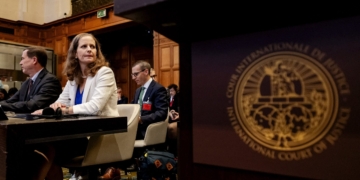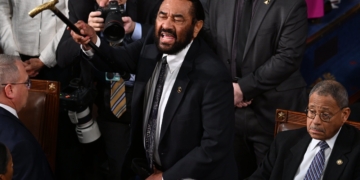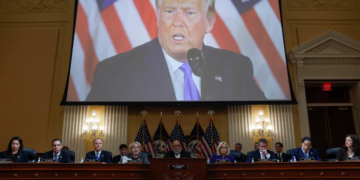In 2025, the political climate across the United States and Europe reflects an era of uncertainty, dynamic power shifts, and increasing public scrutiny. Leaders face mounting pressures from internal divisions, economic challenges, and social movements demanding accountability and reform. The interplay between domestic politics and international responsibilities has intensified, forcing policymakers to navigate a complex landscape where decisions resonate both nationally and globally.
United States: Governance Amid Polarization
The United States continues to grapple with heightened partisan tensions, which have affected legislative processes and policy implementation. The federal government faces challenges related to budget allocation, healthcare reform, and social welfare programs. Congress is divided on critical spending priorities, particularly regarding education and infrastructure, leading to protracted debates that risk delaying necessary initiatives.
Policy disagreements are further exacerbated by ideological divides. Progressive and conservative factions within major political parties advocate competing visions for the nation’s future. Disagreements over taxation, environmental regulations, and social programs have intensified public debates, often spilling into social media platforms, town halls, and public demonstrations.
Supreme Court rulings have also contributed to the political discourse. Decisions regarding civil rights, abortion laws, and voting regulations have significant societal implications. These rulings influence not only legal interpretations but also electoral strategies, as parties adjust their platforms to respond to judicial outcomes and public sentiment.
Electoral Pressures and Political Strategy
Electoral considerations heavily influence the political landscape. With upcoming elections, lawmakers are mindful of voter expectations, political alliances, and public perception. Campaign strategies are increasingly sophisticated, integrating traditional media with digital outreach, grassroots mobilization, and social media engagement. Political messaging now plays a critical role in shaping public opinion and influencing policy priorities.
Moreover, public protests and civic activism have become integral to U.S. politics. Movements advocating for climate change action, social justice, and electoral reform have mobilized millions, placing additional pressure on leaders to respond effectively. The interaction between elected officials and active citizen groups has reshaped governance, demanding transparency, accountability, and responsiveness.
Europe: Leadership Challenges and Populist Momentum
In Europe, political stability faces significant challenges. Several countries contend with coalition governments, populist movements, and economic uncertainties that influence governance. France, Germany, and Italy exemplify the complex political environment in the region, where leadership crises and public dissatisfaction intersect.
France’s political scene has been marked by fragmentation, with far-right parties gaining influence amid public dissatisfaction with economic reforms and government policies. Coalition negotiations have become more intricate, requiring compromise and strategic planning to maintain functional governance. The rise of populism reflects a broader European trend, where citizens increasingly question established parties and seek alternative political voices.
Germany and Italy face challenges in maintaining coalition unity while addressing pressing economic and social issues. Energy security, immigration policy, and fiscal responsibility remain central concerns. Leaders must balance domestic priorities with international commitments, particularly within the framework of the European Union and NATO, ensuring cohesion and stability across member states.
Economic Uncertainty and Policy Responses
Economic instability remains a key factor shaping political decisions. In the United States, concerns over inflation, public debt, and social inequality continue to dominate discussions. Policymakers aim to implement measures that promote sustainable growth while addressing regional and demographic disparities. Strategic investments in infrastructure, education, and technology are prioritized to stimulate long-term economic development.
Europe faces similar pressures, with member states managing fiscal deficits, labor market fluctuations, and uneven economic growth. EU-wide coordination is essential to address these challenges while ensuring equitable support across the union. Economic reforms must balance austerity measures with social spending, maintaining public trust and promoting stability in the face of global competition and market volatility.
Security and International Relations
Security concerns are central to political considerations in both regions. NATO remains a cornerstone of European defense, with member states investing in military capabilities and strategic coordination. Regional conflicts, cyber threats, and geopolitical tensions necessitate vigilance and collaborative action to safeguard stability.
The U.S. continues to navigate complex international relations, balancing national security interests with diplomatic engagement. Defense policy, foreign aid, and international trade agreements are influenced by domestic political priorities, reflecting the interconnected nature of global politics. Collaboration with allies and participation in multilateral initiatives are critical for maintaining influence and addressing shared challenges.
Social Engagement and Civic Participation
Political dynamics are increasingly shaped by public engagement. Social movements, advocacy organizations, and digital activism have empowered citizens to influence policy, demand transparency, and hold leaders accountable. In Europe and the U.S., civic participation plays a crucial role in shaping legislative agendas and electoral outcomes, reinforcing the importance of responsive governance.
Media and communication channels amplify public sentiment, enabling rapid dissemination of information and fostering political discourse. Political leaders must effectively manage public perception while delivering substantive policy solutions, ensuring that governance is both effective and credible.
Looking Forward: Strategic Planning and Governance
The coming years will test the resilience of political institutions in the U.S. and Europe. Leaders must navigate partisan divides, economic pressures, security challenges, and evolving public expectations. Strategic planning, effective communication, and adaptive governance are essential for maintaining stability, promoting growth, and upholding democratic principles.
Policymakers must consider both immediate priorities and long-term objectives, balancing domestic needs with international responsibilities. Effective governance will require collaboration, foresight, and the ability to respond dynamically to changing circumstances. Public trust, institutional integrity, and political accountability will be central to navigating the evolving political landscape.
The political environment in the West is defined by complexity, interconnected challenges, and rapid change. The United States and Europe face pressures that test leadership, governance structures, and public confidence. Political polarization, economic uncertainty, and security concerns intersect to shape decision-making and policy outcomes. Leaders must respond with vision, diplomacy, and responsiveness to ensure stability and foster sustainable development. The trajectory of Western politics will have lasting implications for domestic governance, international relations, and global stability.













